| Selo | College Publications |
|---|---|
| Edição | 0 |
| Idioma | Inglês |
| Autores | Não informado |
| Acabamento | Capa Comum |
| Quantidade de Páginas | 268 |
| Origem | Literatura Estrangeira |
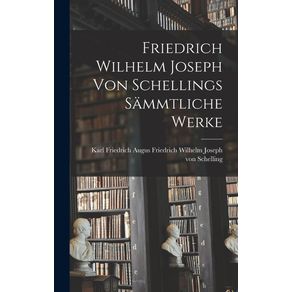 Friedrich Wilhelm Joseph von Schellings Sämmtliche Werke
Friedrich Wilhelm Joseph von Schellings Sämmtliche Werke
Legare Street Press
R$ 258,42 ou até 3x sem juros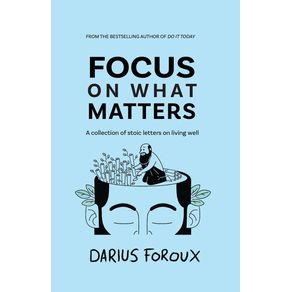 Focus on What Matters
Focus on What Matters
North Eagle Publishing
R$ 117,53 ou até 2x sem juros Thoughts on Life and Religion
Thoughts on Life and Religion
Legare Street Press
R$ 169,57 ou até 3x sem juros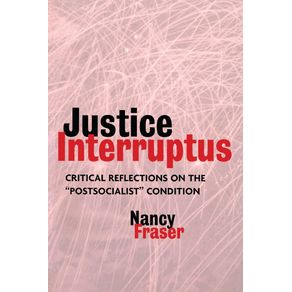 Justice Interruptus
Justice Interruptus
Taylor & Francis Ltd
R$ 564,95 ou até 3x sem juros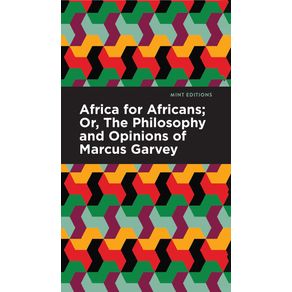 Africa for Africans
Africa for Africans
Mint Editions
R$ 189,05 ou até 3x sem juros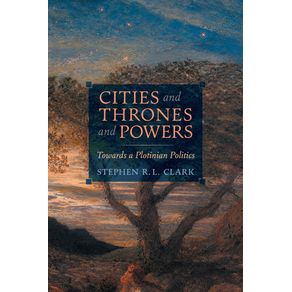 Cities and Thrones and Powers
Cities and Thrones and Powers
Angelico Press Ltd
R$ 196,15 ou até 3x sem juros REALITY (New 2020 Edition)
REALITY (New 2020 Edition)
Peter Kingsley
R$ 281,82 ou até 3x sem juros Self-Reliance, Nature, and Other Essays (Royal Collectors Edition) (Case Laminate Hardcover with Jacket)
Self-Reliance, Nature, and Other Essays (Royal Collectors Edition) (Case Laminate Hardcover with Jacket)
Engage Books
R$ 304,73 ou até 3x sem juros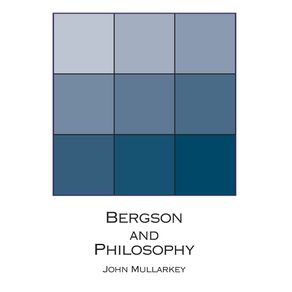 Bergson and Philosophy
Bergson and Philosophy
Longleaf Services Univ of Notre Dame du Lac
R$ 280,99 ou até 3x sem juros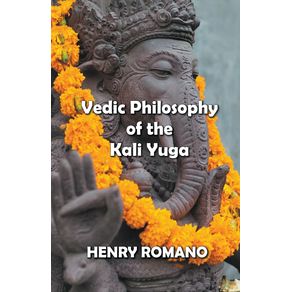 Vedic Philosophy of the Kali Yuga
Vedic Philosophy of the Kali Yuga
Draft2Digital
R$ 110,51 ou até 2x sem juros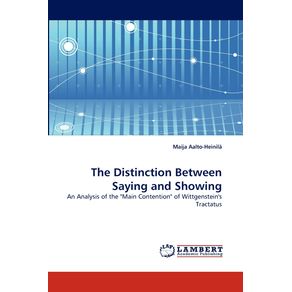 The Distinction Between Saying and Showing
The Distinction Between Saying and Showing
KS OmniScriptum Publishing
R$ 879,89 ou até 3x sem juros How to Live
How to Live
Sivers Inc
R$ 98,80 à vista Bushido, the Soul of Japan
Bushido, the Soul of Japan
Alpha Editions
R$ 100,30 ou até 2x sem juros Civil Society and Political Theory
Civil Society and Political Theory
Random House
R$ 564,65 ou até 3x sem juros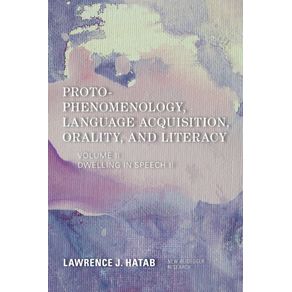 Proto-Phenomenology, Language Acquisition, Orality and Literacy
Proto-Phenomenology, Language Acquisition, Orality and Literacy
Rowman & Littlefield Publishing Group Inc
R$ 346,36 ou até 3x sem juros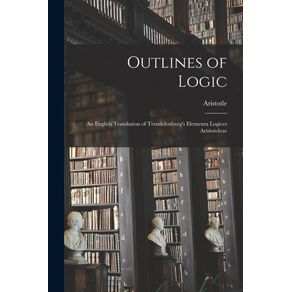 Outlines of Logic; an English Translation of Trendelenburgs Elementa Logices Aristoteleae
Outlines of Logic; an English Translation of Trendelenburgs Elementa Logices Aristoteleae
Legare Street Press
R$ 105,13 ou até 2x sem juros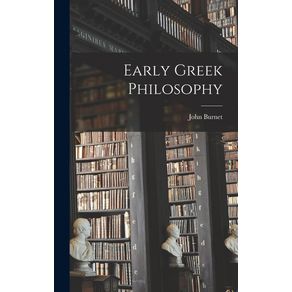 Early Greek Philosophy
Early Greek Philosophy
Legare Street Press
R$ 259,44 ou até 3x sem juros Philosophie des Unbewussten
Philosophie des Unbewussten
Legare Street Press
R$ 335,85 ou até 3x sem juros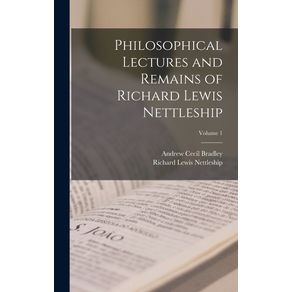 Philosophical Lectures and Remains of Richard Lewis Nettleship. Volume 1
Philosophical Lectures and Remains of Richard Lewis Nettleship. Volume 1
Legare Street Press
R$ 284,48 ou até 3x sem juros Thoughts on Life and Religion
Thoughts on Life and Religion
Legare Street Press
R$ 169,57 ou até 3x sem juros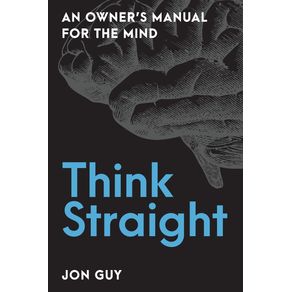 Think Straight
Think Straight
Rowman & Littlefield Publishing Group Inc
R$ 161,97 ou até 3x sem juros Isaiah Berlin and his Philosophical Contemporaries
Isaiah Berlin and his Philosophical Contemporaries
Springer Nature B.V.
R$ 335,22 ou até 3x sem juros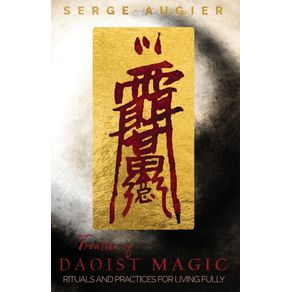 Treatise of Daoist Magic
Treatise of Daoist Magic
DAXUAN International
R$ 123,06 ou até 2x sem juros REALITY (New 2020 Edition)
REALITY (New 2020 Edition)
Peter Kingsley
R$ 281,82 ou até 3x sem juros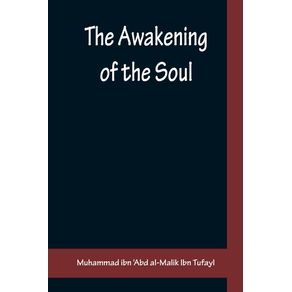 The Awakening of the Soul
The Awakening of the Soul
Alpha Editions
R$ 86,80 à vista Vedic Philosophy of the Kali Yuga
Vedic Philosophy of the Kali Yuga
Draft2Digital
R$ 110,51 ou até 2x sem juros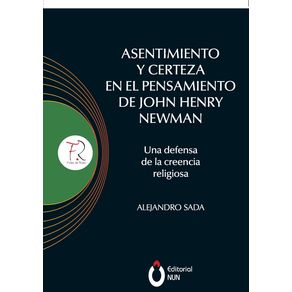 Asentimiento y certeza en el pensamiento de John Henry Newman Una defensa de la creencia religiosa
Asentimiento y certeza en el pensamiento de John Henry Newman Una defensa de la creencia religiosa
Editorial NUN
R$ 135,04 ou até 2x sem juros The Distinction Between Saying and Showing
The Distinction Between Saying and Showing
KS OmniScriptum Publishing
R$ 879,89 ou até 3x sem juros How to Live
How to Live
Sivers Inc
R$ 98,80 à vista Civil Society and Political Theory
Civil Society and Political Theory
Random House
R$ 564,65 ou até 3x sem juros The Seven Generations and The Seven Grandfather Teachings
The Seven Generations and The Seven Grandfather Teachings
James Vukelich
R$ 112,85 ou até 2x sem juros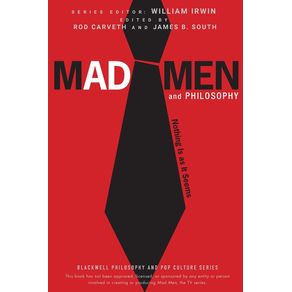 Mad Men and Philosophy
Mad Men and Philosophy
John Wiley & Sons
R$ 142,00 ou até 2x sem juros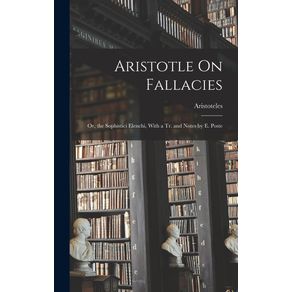 Aristotle On Fallacies
Aristotle On Fallacies
Legare Street Press
R$ 247,03 ou até 3x sem juros Early Greek Philosophy
Early Greek Philosophy
Legare Street Press
R$ 259,44 ou até 3x sem juros The Analyst
The Analyst
Legare Street Press
R$ 140,98 ou até 2x sem juros Justice Interruptus
Justice Interruptus
Taylor & Francis Ltd
R$ 564,95 ou até 3x sem juros The Essential Henry David Thoreau Collection
The Essential Henry David Thoreau Collection
Filibooks ApS
R$ 159,20 ou até 3x sem juros Cities and Thrones and Powers
Cities and Thrones and Powers
Angelico Press Ltd
R$ 196,15 ou até 3x sem juros Isaiah Berlin and his Philosophical Contemporaries
Isaiah Berlin and his Philosophical Contemporaries
Springer Nature B.V.
R$ 335,22 ou até 3x sem juros Self-Reliance, Nature, and Other Essays (Royal Collectors Edition) (Case Laminate Hardcover with Jacket)
Self-Reliance, Nature, and Other Essays (Royal Collectors Edition) (Case Laminate Hardcover with Jacket)
Engage Books
R$ 304,73 ou até 3x sem juros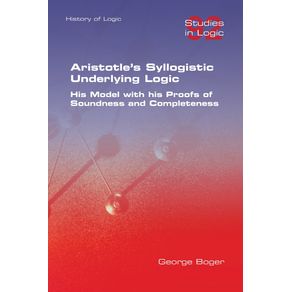 Aristotles Syllogistic Underlying Logic. His Model with his Proofs of Soundness and Completeness
Aristotles Syllogistic Underlying Logic. His Model with his Proofs of Soundness and Completeness
College Publications
R$ 177,95 ou até 3x sem juros The Distinction Between Saying and Showing
The Distinction Between Saying and Showing
KS OmniScriptum Publishing
R$ 879,89 ou até 3x sem juros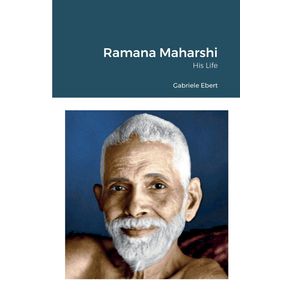 Ramana Maharshi
Ramana Maharshi
Lulu Press
R$ 130,38 ou até 2x sem juros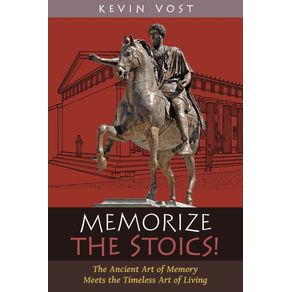 Memorize the Stoics!
Memorize the Stoics!
Angelico Press Ltd
R$ 163,67 ou até 3x sem juros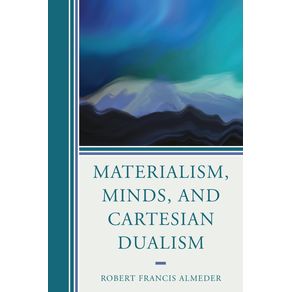 Materialism, Minds, and Cartesian Dualism
Materialism, Minds, and Cartesian Dualism
Rowman & Littlefield Publishing Group Inc
R$ 299,65 ou até 3x sem juros